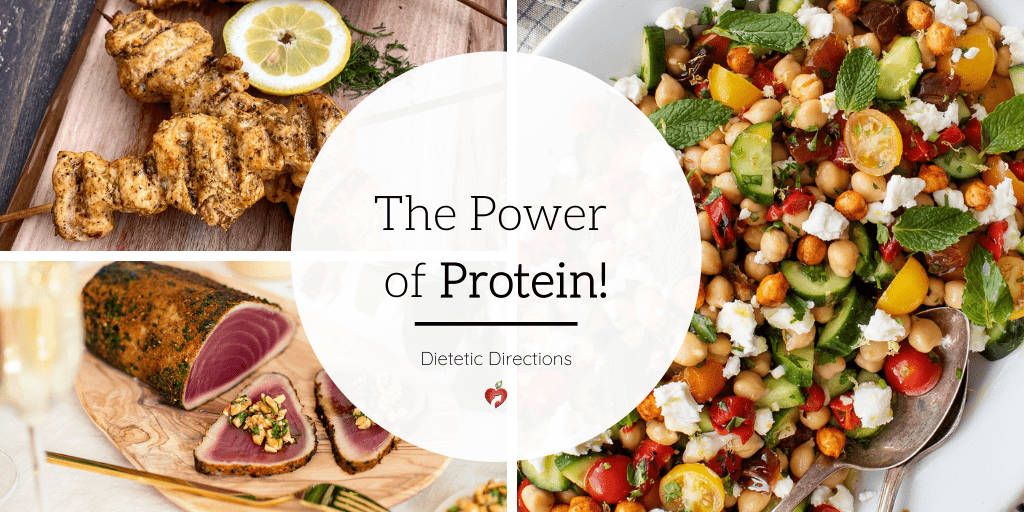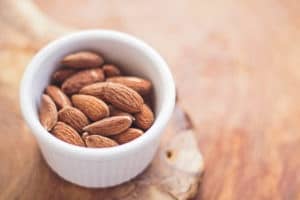
The Power of Protein!
When I mention the word protein, what first comes to mind? Do you think of muscles or strength, or do you think of weight control, possibly energy boosting, or maybe you simply think about different types of foods that contain protein? Today, “protein” is a new industry buzzword used to sell food products like drinks, bars and cereals. And it works! Barry Calpino, vice president for Kraft Foods described protein and stated, “It’s one of those rare things that has a lot of different meanings to a lot of different people and they are all positive.”
Today, let’s take a closer look at protein, how much you need and how to ensure that you are getting sufficient protein in your diet.
Why our Body NEEDS Protein:
- Key component for every body cell; required for healthy functioning
- Supports growth, maintenance and repair of red blood cells
- Builds and repairs muscle tissue, skin, nails and hair
- Involved in hormone production
How much Protein do we Need?
The dietary needs for protein vary depending on our age and life stage (ie. pregnant, lactating). However, there is an on-going debate for how to estimate protein requirements, as we cannot seem to come to a consensus! In Canada, the current dietary recommendations estimate protein needs at 0.8g per kilogram (kg) of body weight per day. (Example: Weight 75kg (165lbs) X 0.8g protein/kg = 60g protein per day). However, this method for estimating protein requirements is likely to underestimate protein requirements due to limitations of the specific technique used. Pivotal research published in American Journal of Clinical Nutrition (2007) found that current protein recommendations are underestimated by approximately 30 percent. Thus, protein research continues to evolve and the debate continues.
Dietary Tips for Meet your Protein Needs:
- Have a protein source at each meal to consistently stimulate protein synthesis
- Aim for 20-30g of protein per meal to maximize muscle growth
- Including protein with all meals helps promote satiety of the feeling of fullness which is imperative in achieving or maintaining a healthy weight
- Do not over-load on protein at one meal because our bodies will “max out” in the absorption of protein at around 30g per meal
- Dietary protein sources (ie. meat, poultry, fish, soy, eggs, nuts, diary)opposed to protein powder, areas/moreeffective for muscle growth and recovery. Food sources for protein also provide other essential vitamins and minerals vital to health and well-being.
Bottom Line:
Undeniably, there is power in protein! Be sure to include a source of protein at each meal to support the growth, maintenance and repair of muscles, body tissues and blood cells. Please consult with a Registered Dietitian to receive tips and tricks to ensure you are meeting your protein needs!


